It was 2 a.m. one January morning in Dumbe, five kilometres from the Kolmani oil field in Nigeria’s North East. Nafisa had been enduring a painful labour for three days under the care of a local midwife. Now, the pain seemed unbearable. In a state of panic, her husband, 34-year-old Abdullahi Buba, rushed to his friend, Musa, who owned a motorcycle, seeking help to transport Nafisa to a clinic in Pindiga, a town 150 kilometres away. The journey on the rough road would take them three hours, a ride filled with anxiety and desperation. Every bump and jolt intensified Nafisa’s pain. By the time they reached the clinic, she was barely conscious. The medical staff quickly took over, and soon, the cries of a baby boy filled the room.
This harrowing experience was all too common among the women in Dumbe. And beyond maternity crises, the community struggles with complications like eye irritation, cancer, cholera, and typhoid. They all blamed the water source.
One would wonder: What could have contaminated their water?
A new treasure
In October 2019, the Nigerian Federal Government announced a significant oil discovery in a border region between Bauchi and Gombe states. It contained at least one billion barrels of oil reserves and 500 billion cubic feet of gas. Former President Muhammadu Buhari expressed satisfaction with the development. “[It is] to the credit of this administration that at a time when there is near zero appetite for investment in fossil energy, coupled with the location challenges, we are able to attract investment of over USD 3 billion to this project,” he stated.
This accomplishment — 63 years after the nation’s first discovery of oil in commercial quantities in the Niger Delta — was hailed as a transformative milestone and anticipated to yield considerable economic advantages in the region.
The challenges it comes bearing
Events in the Niger Delta provide a cautionary tale; decades of oil exploration in the region have resulted in extensive environmental degradation, socio-economic dislocation, and health crises. Reports from the United Nations Environment Programme (UNEP) and Amnesty International have documented the catastrophic impacts of oil spills, gas flaring, and pollution on the Niger Delta’s ecosystems and communities. Many rivers and farmlands have been rendered unusable, leading to loss of livelihoods and severe health issues among the local population. The long-standing neglect and exploitation have fuelled social unrest and militancy, culminating in a deeply entrenched conflict.
Kolmani is beginning to give way to similar concerns as environmental and socio-economic challenges surface. The initial phase of exploration has already begun to mirror the early signs of environmental degradation seen in the Niger Delta.
The villages surrounding the oil field, including Dumbe, Kaltanga, Gagarabami, and Barambu, are agrarian and herder communities. They cultivate maize, millets, sorghum, sesame, and groundnuts.
Jauro Jibrin, a middle-aged farmer in Dumbe, recounts how heavy machinery used in oil drilling disrupted the soil structure. “The excavation of the oil made the machines dig tunnels, creating a way for erosion to flood some parts of the community and destroy our farmlands. They also cut down trees on those paths,” he laments.
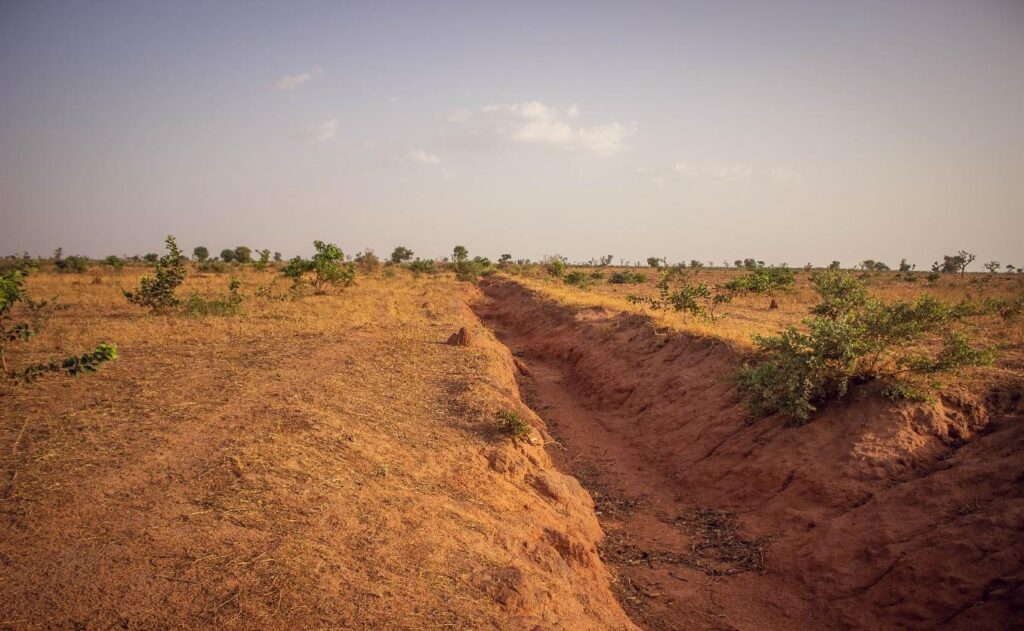
Jauro Abubakar, a 45-year-old farmer in Gagarabami, four kilometres from the extraction site, adds that agricultural productivity has significantly dropped since the commencement of oil exploration.
“A person who would harvest over 100 bags of grains previously could hardly harvest 30 bags at present, even with the help of fertilisers,” he reveals. “Some of the exploration sites are in our farmlands. So, lands near those sites cannot be farmed. Although there are no spillages yet, the germination of plants differs. Lands near the exploration sites have little plants germinating.”
The communities’ water quality has also been compromised, likely by chemicals used in the extraction process. This has posed health risks to people living nearby. “Some people have eye irritations, the pupils slightly becoming red,” Jibrin says. “The water was clearer before and even tasted better.”
Buba adds that the frequent health challenges arising from drinking the water are cholera and cancer. “Women and children are the most affected. Our women face difficulties during delivery. A woman may be in labour for about five days. Children, particularly those below three, mostly get drips when admitted. The animal population, particularly cattle, has reduced because they keep dying, possibly from drinking the water.”
Sunday Peter, a patent medicine store owner in Dumbe and the only go-to healthcare professional in the community, corroborated these findings, noting frequent complaints of blood urination, fever, and skin rashes, which he attributes to the polluted water.
These health challenges are indirectly linked to oil drilling activities, which involve the use of harmful chemicals that seep into the groundwater. Bello Abdulkadir, the Chief Medical Officer at Cottage Hospital Pindiga, confirmed this connection.
“The water from the well is coming from beneath the ground. And these chemicals, once poured, go down to meet the water, which in turn pumps up to their wells. When they drink this water, they get respiratory diseases and eye irritation. Also, when these chemicals become much in the body system, it may lead to cancer,” he explains.
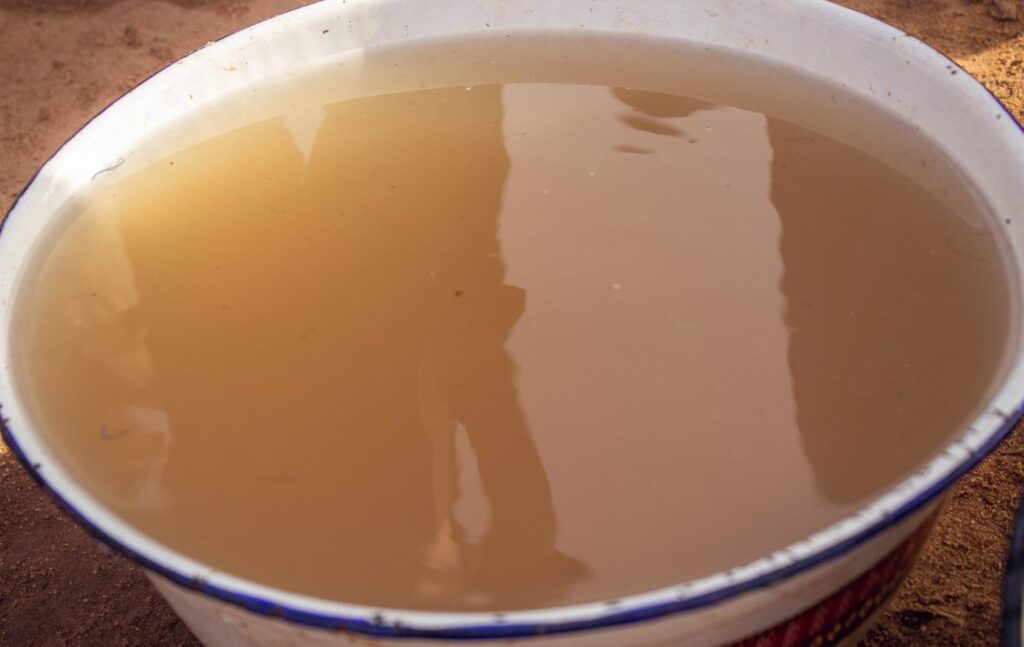
Oil exploration and processing activities often lead to the release of toxic gases into the environment, including methane (CH4), nitrogen oxide (NOx), sulfur dioxide (SO2), and volatile organic compounds (VOCs). These do not only harm the environment and hasten climate change but can also have adverse effects on human health, such as asthma, cardiac disorders, lung damage, infections, and respiratory issues
In addition to the health issues, a 2023 study observed that Northern Nigeria, a major food-producing region, also risks soil fertility loss and agricultural disruption due to potential oil-related land pollution as a result of the oil exploration project.
Through an assessment of satellite imagery in 2022, HumAngle showed how the rapid exploration has impacted the local environment. The movement of heavy vehicles and the construction of support infrastructure have altered the geography of the region, which consisted of scattered trees, small clusters of compounds, and farmlands.
The village head of Dumbe, Mamman-Tukur Muhammad, also points to the socio-economic disruptions caused by the oil exploration. “There have been disagreements over ownership of farmlands and even the oil fields since the discovery of oil. The company did not prevent us from farming. However, we no longer farm with peace of mind because our crops are often destroyed by herders who were not here before the oil,” he states. He further warns that there will be serious communal conflict if the government does not intervene soon.
This influx of herders and the resulting conflicts further strain the community’s resources and social cohesion.
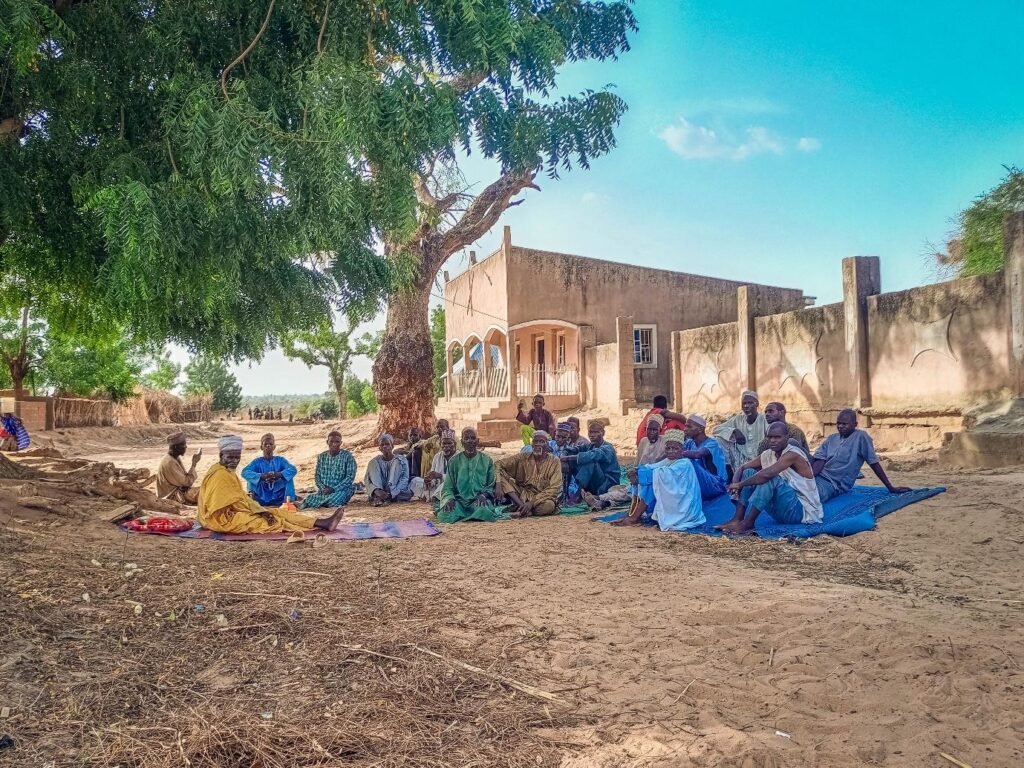
Muhammad’s claim is corroborated by a 2022 Punch report, which indicated that communities in Bauchi and Gombe states surrounding the extraction sites were clashing over ownership of the fields.
The Nigerian government’s approach to managing oil resources has historically been criticised for its lack of transparency and accountability. The Petroleum Industry Act (PIA) 2021 was introduced to address some of these concerns by promoting sustainable development and ensuring that host communities benefit from oil revenues. However, its implementation remains a contentious issue, with many communities expressing scepticism about the government’s commitment to genuine reform.
A 2020 report by the Nigeria Extractive Industries Transparency Initiative (NEITI) emphasises the need for stringent regulatory oversight to prevent the repetition of the Niger Delta scenario in Kolmani. The report underscores the importance of implementing sustainable practices and ensuring that oil exploration does not come at the expense of environmental integrity and community well-being.
Amplifier of climate change?
Oil exploration is deeply intertwined with climate change, a global crisis characterised by rising temperatures, extreme weather events, and environmental degradation. The extraction and burning of fossil fuels are major contributors to greenhouse gas emissions, particularly carbon dioxide (CO2) and methane (CH4). Methane, which is often released during oil drilling, is significantly more potent than carbon dioxide in trapping heat in the atmosphere, thus accelerating global warming.
The Nigerian government, under international pressure, has committed to reducing emissions by 20 per cent unconditionally and up to 47 per cent with international support by 2030. Governor Inuwa Yahaya of Gombe State has acknowledged the need to avoid the environmental pitfalls experienced in the Niger Delta. Promises to adhere to a “zero gas flare regime” and mitigate environmental damage through smaller operational footprints, noise limits, and buried pipelines have been made. Despite these commitments, the push for new oil projects like Kolmani highlights the ongoing tension between economic development and environmental sustainability. The effectiveness of pledges remains uncertain, especially given the region’s fragile ecosystem.
Impacts versus prospects
The local climate and environment in the Kolmani region have begun to be impacted in the early stages of oil exploration. The disruption of land for drilling and the potential release of methane pose severe risks in addition to existing climatic challenges.
“There is a changing pattern of rainfall. We used to record early downpours before,” Buba reveals. He adds that the community also suffers from desertification, majorly resulting from the harvesting of vegetation covers for farming activities and fuel.
“The temperature here has greatly increased compared to previous years. We have never experienced hot weather like we did this season. Whenever there is an extreme heatwave, we can hardly get water,” Jibrin adds.
The Intergovernmental Panel on Climate Change (IPCC) has highlighted the urgent need to reduce methane emissions to mitigate climate change. However, oil exploration activities, particularly in developing regions like Kolmani, often lack stringent environmental controls, leading to unregulated emissions and environmental degradation. The situation in Kolmani shows the broader implications of fossil fuel dependency and the urgent need for a transition to cleaner energy sources.
Kolmani’s environmental challenges are further compounded by the North East’s broader climate vulnerabilities. The region has been experiencing significant environmental challenges, including intense heat waves and desert encroachment. These climatic conditions have drastically altered the local landscape, exacerbating water scarcity and degrading arable land. Communities have faced unprecedented temperatures, leading to increased health risks, reduced agricultural yields, and heightened vulnerability to extreme weather events. The interplay of these factors has intensified the socio-economic hardships in these areas, placing immense pressure on the already strained resources and infrastructure.
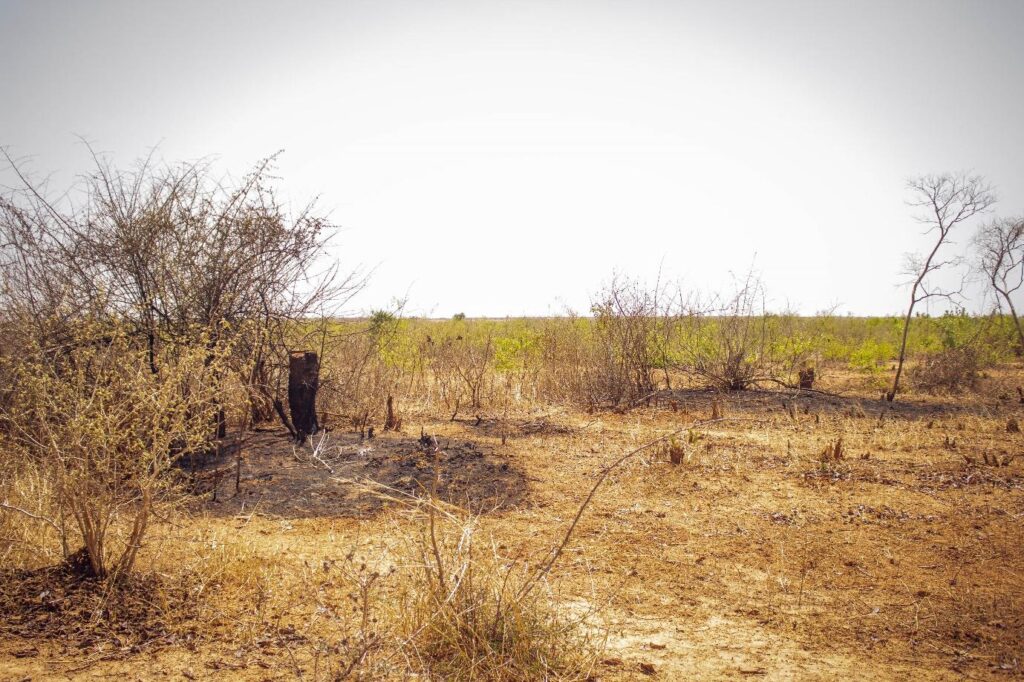
Desertification in the region is further compounded by deforestation and unsustainable land use practices. The encroachment of desert sands into once-fertile lands has reduced the availability of grazing areas for livestock and has led to conflicts over dwindling resources. As vegetation cover diminishes, the soil becomes less stable, increasing the likelihood of dust storms that contribute to poor air quality and respiratory issues among the population. The interplay between these environmental stressors has created a feedback loop, making it increasingly difficult for the local communities to adapt and thrive.
The discovery of huge oil and gas reserves in Kolmani brings with it the potential for substantial economic benefits but also significant environmental risks. If we consider the average emissions from oil and gas production, the Kolmani field could generate an estimated 200 million tons of CO2 annually — based on typical emissions factors for crude oil and natural gas extraction, processing, and flaring activities.
Additionally, methane emissions from natural gas production are a critical concern, given methane’s potency as a greenhouse gas. Methane traps heat in the atmosphere more effectively than CO2, making it a significant driver of short-term climate change. If not managed properly, the Kolmani oil field could emit substantial amounts of methane, further accelerating desertification and intensifying heat waves in Nigeria’s North East.
The economic prospects of oil drilling in Kolmani must, therefore, be weighed against these environmental and social costs. While the revenues from oil can provide significant financial resources for local and national development, the environmental degradation and health risks could undermine these benefits, leading to long-term economic and social instability.
The Nigerian government has made international commitments to combat climate change, including signing the Paris Agreement and pledging to reduce greenhouse gas emissions. However, the implementation of these commitments remains inconsistent. The continued investment in oil exploration and production, particularly in new frontiers like Kolmani, raises questions about the government’s genuine commitment to transitioning to a low-carbon economy.
Absence of social investments
Despite the communities’ plight, there has been a conspicuous absence of government intervention. “There is no single government project in this community. We have neither school nor a clinic. The nearest are in Pindiga, 150 kilometres away,” laments the village head of Dumbe, Mamman-Tukur Muhammad.
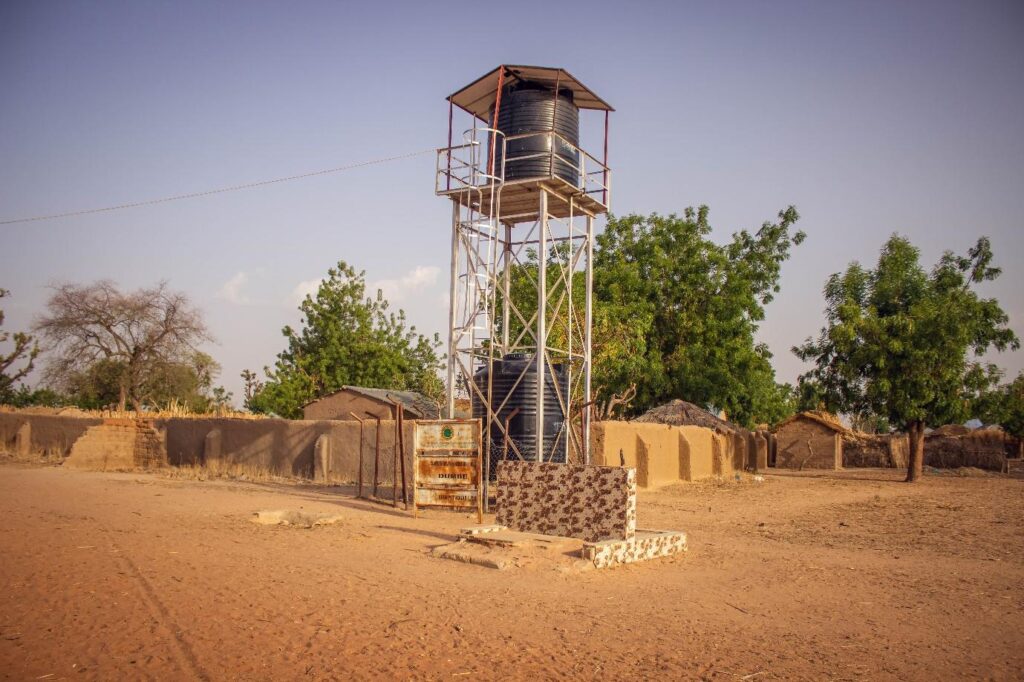
“The company [NNPC] dug a borehole, which is presently unfunctional. It also built a clinic, which has yet to be launched in Gagarabami. None of the other villages have schools or other facilities too. Kaltanga is the only village with a classroom which was from the community’s effort,” Buba reveals.
This lack of investment in basic amenities is a glaring indictment of the government’s failure to uphold its responsibilities.
Moreover, compensation for the damage caused by oil exploration has been inadequate and inconsistent. While some farmers received nominal sums, others received nothing, exacerbating feelings of neglect and abandonment.
“Each farmer was compensated according to the degree of excavation. One of the farmers on whose farmland the extraction is situated was given ₦1.1 million ($720). Another got ₦900,000. The majority got between ₦300,000 and ₦500,000. Others got nothing. This was about four years ago,” Muhammad alleges.
Efforts to speak with representatives of the state governments and the NNPC regarding the accusations were unsuccessful.
HumAngle shared our findings with the Federal Ministry of Petroleum Resources. Officials promised to contact us later with comments but have yet to do so.
The Nigerian government’s commitment to addressing these issues appears lukewarm. While authorities have made grand promises of integrated development projects, the reality on the ground suggests a gap between rhetoric and action. The government’s track record in the Niger Delta, where oil wealth has not translated into tangible benefits for local communities, raises doubts about Kolmani’s future.
The communities have one major demand: A well-equipped and functional healthcare centre. “We hope to get a school for our children and a clean source of water, too, but they are not as pressing as a clinic,” they pleaded.
Support for this report was provided by the Centre for Journalism, Innovation and Development (CJID)
Support Our Journalism
There are millions of ordinary people affected by conflict in Africa whose stories are missing in the mainstream media. HumAngle is determined to tell those challenging and under-reported stories, hoping that the people impacted by these conflicts will find the safety and security they deserve.
To ensure that we continue to provide public service coverage, we have a small favour to ask you. We want you to be part of our journalistic endeavour by contributing a token to us.
Your donation will further promote a robust, free, and independent media.


